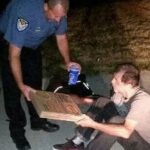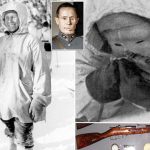Uncle Rudy: Ruthless, Loyal, and a Gentleman

When I was a little kid, something happened with a girl across the street that left me nervous and afraid. Her father was a massive man, a former St. Louis Cardinal, and I was certain he’d come after me. I ran to my father and told him what had happened. He didn’t flinch. He just said: “Don’t worry. Uncle Rudy will take care of it.”

That was the first time I really began to understand who Uncle Rudy was.
Rudolph Santobello—look him up—wasn’t just some neighborhood tough guy. He was a capo in the Genovese crime family, the man who ran Arthur Avenue in the Bronx. To the world outside, he was feared. But to us, to the family, he was simply Uncle Rudy.
He lived in a mansion up in Scarsdale. Beneath it, he had built an underground pool. But he never got to use it. The town refused to issue him permits—because everyone knew exactly who he was. That was the paradox of Rudy’s life: immense power and respect, but also the invisible walls of notoriety.
My father once worked for him, running numbers, part of Rudy’s operations. But after some disputes, Dad left that world behind and started driving a milk truck. Still, the shadow of Uncle Rudy loomed over everything. When my father was later caught stealing $50,000 from the factory, the punishment could have been devastating. Yet Rudy personally showed up. He walked into the factory, looked the bosses in the eye, and told them to drop the charges—or the entire place would disappear. And they did. That was Rudy in a nutshell: ruthless when crossed, but unwaveringly loyal to those he considered his own.
The neighborhood adored him. Old women on Arthur Avenue would kiss me on the cheek the moment they learned I was his nephew. To them, he wasn’t just a mob boss—he was a protector, a figure of respect, someone who made sure the community ran under his watch.
Even within our own family, his influence was untouchable. My great-grandmother, well into her nineties, would walk alone to Carmel Church every Sunday. No one dared lay a finger on her, because everyone knew: she was Rudy’s mother. She carried that invisible shield of fear and reverence.
But fate, unlike people, cannot be controlled. One day, an oil truck accidentally knocked her down. She hit her head, developed dementia, and eventually forgot even her son, Rudy. Everyone in the family braced for revenge. They thought the driver wouldn’t live to see another day. But Rudy surprised them. Instead of ordering retribution, he simply shrugged and said: “Accidents happen.”
That was Uncle Rudy in his truest form—a man capable of ruthless violence, yet also bound by a code, a strange gentleness when it came to family and fate. He lived as both a feared gangster and a beloved gentleman.
And for me, as a child, that duality became my first lesson about the complexity of power, loyalty, and love.











